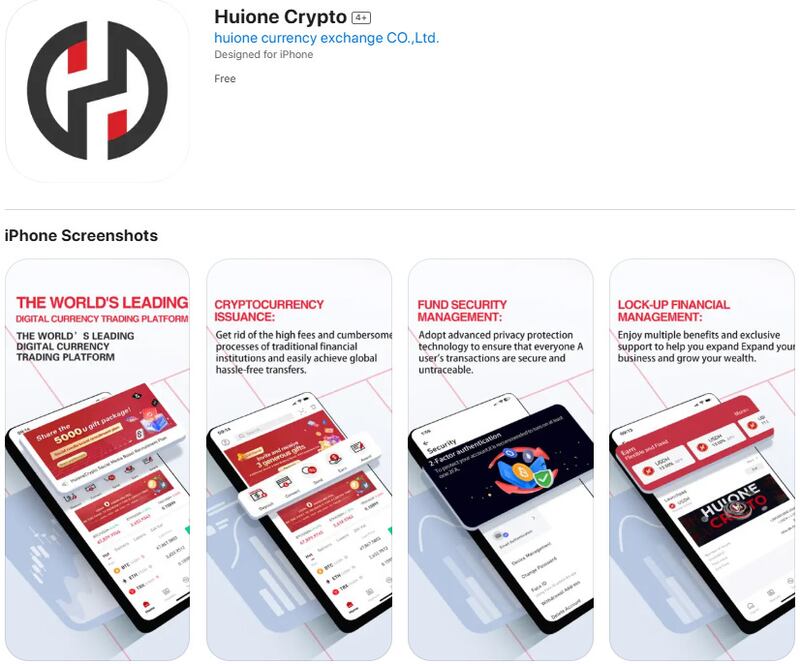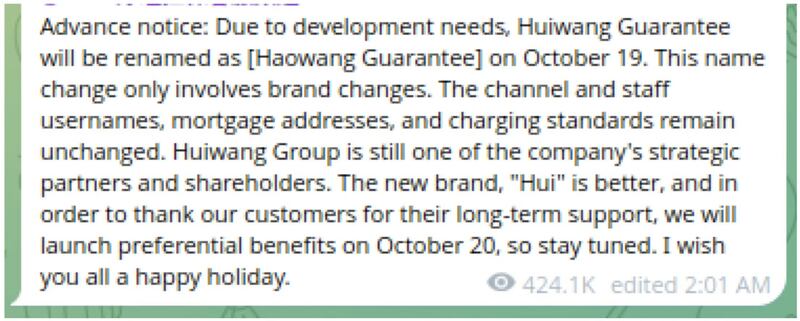An app from a Cambodian financial firm accused of operating the world’s “largest illicit online marketplace” could be downloaded from Google until today, and is still available on Apple.
Huione Guarantee, a Telegram marketplace, has facilitated billions of dollars in transactions since 2021 – much of which has been for illicit services, from money-laundering to the sale of torture devices, according a report issued on Tuesday by London-based cryptocurrency compliance firm Elliptic.
Huione Guarantee is part of the Huione Group, a Phnom Penh-based institution that offers products from payments platforms to insurance.
“With transactions totaling at least $24 billion, it [Huione Guarantee] is the largest illicit online marketplace to have ever operated,” Elliptic found.
But until today, U.S. tech giants Apple and Google each provided users access to one of Huione Group’s most important offerings, a cryptocurrency app.
Google removed the app after being contacted by Radio Free Asia on Tuesday. As of publication, however, Apple had not provided an on-the-record response to RFA, and Huione Crypto was still available in its app store.

Tuesday’s report was not the first time allegations of its connection to organized crime had been publicized, including by Elliptic in a report released in July 2024.
Huione issued a blanket denial of any allegations of wrongdoing at the time.
Not long after the Elliptic report was published, the United Nations Office on Drugs and Crime, or UNODC, described how Huione Guarantee – referred to by the codename “TM 1” – had laundered money not only for digital fraudsters but also sanctioned North Korean hackers.
“The integration of platforms and service providers like Huione into the regional criminal ecosystem has allowed criminal groups to expand their business by creating an easily accessible interface between criminal enterprises and the general public,” the UNODC’s deputy regional representative, Benedikt Hofmann, told RFA.
Minimizing oversight
Like other successful businesses in Cambodia, Huione has ties to the country’s ruling Hun family. A cousin of Prime Minister Hun Manet sits on its board.
But given the considerable controversy surrounding the company, experts on Southeast Asian organized crime reacted with surprise that Apple and Google had chosen to allow Huione Crypto to be sold in their app stores.
“Allowing a demonstrably criminalized corporation to list their app on major tech platforms is irresponsible,” Jake Sims, a visiting expert on transnational crime at the United States Institute of Peace, told RFA. “Obviously, it expands the reach and thereby profitability of the enterprise. Perhaps worse, it offers them legitimacy.”
Imploring the tech giants to “proactively do the right thing and improve their vetting processes,” Sims called on Western governments to sanction Huione to “make it far less likely that companies like Apple and Google would risk doing business with a company now demonstrated to be the largest online criminal marketplace in history.”
RELATED STORIES
Report: Online cybercriminal marketplace is part of Cambodian conglomerate
EXCLUSIVE: Prince Group ties risk tainting Cambodia’s first US IPO
Cambodia’s new cabinet is steeped in nepotism
Within hours of being contacted by RFA, Huione Crypto had been delisted by Google.
“We’ve looked into this issue and the app is no longer available on Google Play,” Danielle Cohen, a Google spokesperson told RFA by email.
The app appeared to have been launched to complement Huione’s release of its stablecoin, USDH, in September 2024. Unlike most cryptocurrencies, stablecoins distinguish themselves by being completely backed by real-world currency reserves, to which their value is pegged.
While other digital currencies’ prices fluctuate wildly, one stablecoin should in theory always be exchangeable for one unit of whatever currency they are tied to. In the case of USDH, as with most stablecoins, the currency is the U.S. dollar.

On its website, Huione suggests users of its cryptocurrency can expect less oversight than other digital coins. “USDH is not restricted by traditional regulatory agencies, and users' assets will not be frozen at will,” claims a promotional page for Huione’s stablecoin.
The UNODC has not specifically discussed Huione with the private sector, Hofmann said. But he added “major players” – such as Google and Apple – agree that they need to take steps to make it “more difficult for criminal groups to use social media platforms and various app stores for their purposes.”
While Huione is apparently the largest marketplace of its kind, it is not the only one on the U.N.’s radar.
“We have seen crypto exchanges, illicit online marketplaces and other related service providers popping up at an unprecedented rate across the region, with many linked to serious organized crime actors within the illicit economy,” Hofmann said.
In October last year, Huione Guarantee rebranded as Haowang Guarantee. In a since-deleted message on the Telegram app announcing the update, the marketplace insisted that “this name change only involves brand changes” and “Huione Group is still one of the company’s strategic partners and shareholders.”
However, Haowang Guarantee told RFA that since the announcement “Haowang Guarantee has had nothing to do with Huione and it operates independently.” Emails to the wider Huione Group were unanswered as of publication.
Edited by Jim Snyder and Boer Deng.
